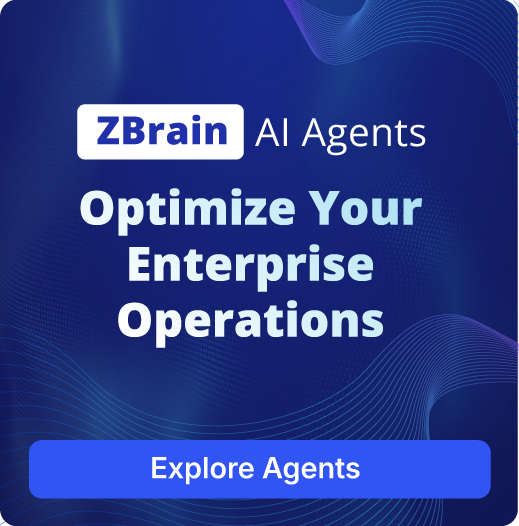
Knowledge Gap Analysis Agent
Identifies recurring support issues missing from the knowledge base, highlighting areas for documentation updates.

FAQ Generation Agent
Automatically generates FAQs from helpdesk tickets and resolutions, creating accessible answers to recurring support issues and questions.

Knowledge Gap Analysis Agent
Identifies recurring support issues missing from the knowledge base, highlighting areas for documentation updates.

FAQ Generation Agent
Automatically generates FAQs from helpdesk tickets and resolutions, creating accessible answers to recurring support issues and questions.
Streamline Knowledge Management with ZBrain AI Agents
ZBrain AI Agents for Knowledge Management transform customer support operations by automating the organization and distribution of information. These AI agents excel in tasks like Knowledge Gap Analysis and FAQ Generation, helping businesses identify and address informational deficiencies swiftly. Through Knowledge Gap Analysis, ZBrain AI Agents analyze customer queries to pinpoint areas where information is lacking, enabling companies to proactively address these gaps. This approach ensures customers receive accurate, timely responses, reducing wait times and enhancing satisfaction. With automated FAQ Generation, ZBrain AI Agents simplify the creation and maintenance of self-service resources. By analyzing real-time data, these agents generate and update FAQs to reflect the most relevant and commonly requested information. This reduces the workload on support teams while ensuring customers have access to clear and concise answers. By streamlining knowledge management processes, ZBrain AI Agents empower companies to improve operational efficiency, provide superior customer experiences, and ensure both teams and customers benefit from accessible and accurate information.

